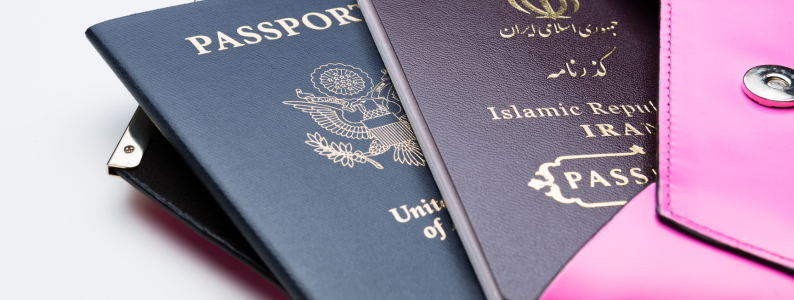Top Mistakes Parents Make in Hague Convention Petitions and How to Avoid Them
International child custody disputes are among the most complex and emotionally charged legal matters a family can face. When a child is wrongfully removed or retained across international borders, parents often turn to the Hague Convention on the Civil Aspects of International Child Abduction (commonly referred to as the Hague Convention) for resolution.
While the Convention provides an essential framework for protecting children and reuniting families, navigating its procedures can be challenging. Mistakes in filing a Hague petition can result in delays, denials, or even permanent custody complications.
At Masters Law Group, we are committed to guiding families through these complex cases with precision and care. In this blog, we outline the top mistakes parents make when filing Hague Convention petitions and provide actionable strategies to avoid them.
1. Failing to File Promptly
The Mistake: One of the most common errors parents make is delaying the filing of a Hague petition after a child has been wrongfully removed or retained. The Hague Convention emphasizes the prompt return of children, and courts often consider the timing of the petition when making decisions. Delays can give the opposing parent time to establish ties in the new country, complicating the case.
Why It Matters: Article 12 of the Hague Convention establishes a presumption that children under 16 should be returned promptly unless they have lived in the new country for more than one year and are settled. Filing late can weaken a parent’s position and may require additional evidence to justify the delay.
How to Avoid It:
- Contact an international family law attorney immediately after a wrongful removal or retention.
- Gather evidence of the child’s habitual residence and the circumstances of removal.
- File the petition as soon as possible to demonstrate urgency and commitment to the child’s best interests.
2. Inadequate Documentation
The Mistake: Hague petitions require detailed documentation, including proof of custody, evidence of wrongful removal or retention, and a record of attempts to resolve the matter amicably. Parents sometimes submit incomplete or inconsistent documents, weakening their case.
Why It Matters: Courts and central authorities rely heavily on documentation to evaluate the validity of a petition. Missing birth certificates, parenting plans, or evidence of habitual residence can delay proceedings or result in outright dismissal.
How to Avoid It:
- Compile a comprehensive packet that includes allocation of parental responsibilities, court orders, and any communications relevant to the child’s removal.
- Provide clear evidence of the child’s habitual residence and ties to the home country.
- Maintain consistency in all submitted documents, avoiding contradictions that could undermine credibility.
3. Misunderstanding “Wrongful Removal” Criteria
The Mistake: Some parents incorrectly assume that any international relocation without consent constitutes wrongful removal. However, under the Hague Convention, wrongful removal or retention occurs only when it breaches parenting plans established under the child’s habitual residence.
Why It Matters: If the parent initiating the petition cannot prove that the child was wrongfully removed or retained, the case is likely to fail. Misinterpreting the criteria can lead to wasted time, emotional stress, and legal fees.
How to Avoid It:
- Work with an attorney to clearly establish what constitutes wrongful removal under the Hague Convention.
- Document the legal custody arrangements in the country of habitual residence.
- Include evidence showing that consent was not given for the child’s relocation.
4. Overlooking Jurisdictional Issues
The Mistake: Parents sometimes file petitions in the wrong country or fail to account for jurisdictional complications, such as dual citizenship or multiple residences. Filing in the incorrect jurisdiction can result in delays or dismissal.
Why It Matters: The Hague Convention is designed to return children to their country of habitual residence, not to adjudicate custody disputes in the new country. Filing in the wrong jurisdiction can signal a lack of preparation or understanding of international law.
How to Avoid It:
- Determine the child’s habitual residence carefully, taking into account the last country in which the child regularly lived before removal.
- Consult legal counsel experienced in international custody law to help ensure correct jurisdiction.
- Understand local laws in both the country of habitual residence and the country where the child is located.
5. Underestimating the Role of Central Authorities
The Mistake: Many parents are unaware that the Hague Convention requires coordination with central authorities in both countries involved. Some assume their attorney can file directly with the foreign court without engaging these authorities.
Why It Matters: Central authorities are responsible for facilitating communication, verifying documentation, and coordinating legal proceedings. Ignoring their role can delay case processing and reduce the likelihood of a favorable outcome.
How to Avoid It:
- Engage with the central authority in your country immediately after a child’s removal or retention.
- Ensure all communications with foreign authorities go through proper channels.
- Follow guidance from the central authority regarding documentation and procedural steps.
6. Failing to Consider the Child’s Best Interests
The Mistake: Some parents focus solely on legal arguments and overlook how the child’s welfare may impact the case. The Hague Convention emphasizes returning children to their country of habitual residence unless there is a grave risk of harm.
Why It Matters: Courts may deny a petition if returning the child would expose them to physical or psychological harm. Ignoring these considerations can weaken a petition and lead to protracted litigation.
How to Avoid It:
- Include evidence addressing the child’s well-being and safety in the home country.
- Be prepared to propose practical arrangements to help minimize disruption for the child during proceedings.
- Consult child welfare experts if necessary to strengthen your case.
7. Making Emotional or Public Statements
The Mistake: In high-stress situations, parents sometimes make public statements, post on social media, or express anger toward the other parent. Such actions can be used against them in court.
Why It Matters: Judges and authorities may view emotional outbursts or public campaigns as evidence of poor judgment, which could influence custody or return decisions.
How to Avoid It:
- Maintain a professional and calm demeanor in all communications.
- Avoid posting about the case on social media.
- Let your attorney handle communications with the other parent and foreign authorities.
8. Ignoring Legal Changes or Country-Specific Procedures
The Mistake: Parents occasionally file petitions based on outdated laws or fail to consider specific procedures in the child’s location. For example, countries may have additional requirements, timeframes, or exceptions not found in the Hague Convention itself.
Why It Matters: Failure to comply with local rules can result in delays, denials, or even sanctions. Understanding these nuances is critical for a successful petition.
How to Avoid It:
- Research the procedural requirements in both the home country and the country where the child is located.
- Partner with attorneys who have experience with the laws of both countries.
- Stay informed about international legal developments that may affect the case.
9. Overlooking the Possibility of Mediation or Negotiation
The Mistake: Some parents view the Hague Convention petition solely as a litigation tool and neglect opportunities for negotiation or mediation, which can sometimes achieve faster, less adversarial solutions.
Why It Matters: Negotiated agreements can help reduce stress, protect the child’s welfare, and preserve family relationships. Courts often encourage parents to pursue amicable solutions before litigation.
How to Avoid It:
- Consider mediation with the other parent under guidance from legal counsel.
- Explore temporary custody or visitation arrangements while proceedings are ongoing.
- Present any negotiated agreements to the court as evidence of a good-faith effort to resolve the dispute.
10. Failing to Plan for Enforcement and Follow-Up
The Mistake: Even after a successful petition, parents sometimes neglect to plan for enforcement or post-return matters. Without proper follow-up, the other parent may resist compliance or attempt to relocate the child internationally.
Why It Matters: The Hague Convention addresses initial return but does not resolve long-term custody. Proper planning helps ensure that the child’s return is effective and that custody arrangements are enforced.
How to Avoid It:
- Work with your attorney to establish clear post-return custody arrangements.
- Coordinate with law enforcement or child protection agencies if necessary.
- Maintain documentation of compliance and any violations to protect your rights.
Final Thoughts
Filing a Hague Convention petition is a high-stakes process that demands careful preparation, timely action, and attention to legal detail. Mistakes – ranging from delayed filings and inadequate documentation to overlooking jurisdictional nuances and child welfare considerations – can significantly impact the outcome of a case.
At Masters Law Group, we’re highly skilled in navigating international custody disputes with precision and care. Our attorneys have extensive experience guiding parents through the Hague Convention process, helping them avoid common pitfalls and maximize the likelihood of a favorable outcome.
Key Takeaways to Help Protect Your Case:
- Act quickly and file your petition without delay.
- Gather complete, accurate, and consistent documentation.
- Clearly demonstrate wrongful removal or retention.
- Understand jurisdictional requirements and the role of central authorities.
- Prioritize the child’s best interests and maintain professionalism.
- Stay informed about country-specific rules and opportunities for negotiation.
- Plan for enforcement and post-return custody matters.
Navigating a Hague Convention petition can be emotionally and legally challenging, but with the right guidance, parents can protect their rights, prioritize their child’s welfare, and work toward a resolution that serves the best interests of all involved.
If you are facing an international child custody dispute, contact Masters Law Group today. Our team of experienced family law attorneys can provide guidance to help you navigate the Hague Convention process efficiently and effectively.
Disclaimer: This blog is for informational purposes only and does not constitute legal advice. Please consult an attorney regarding your specific circumstances.










































